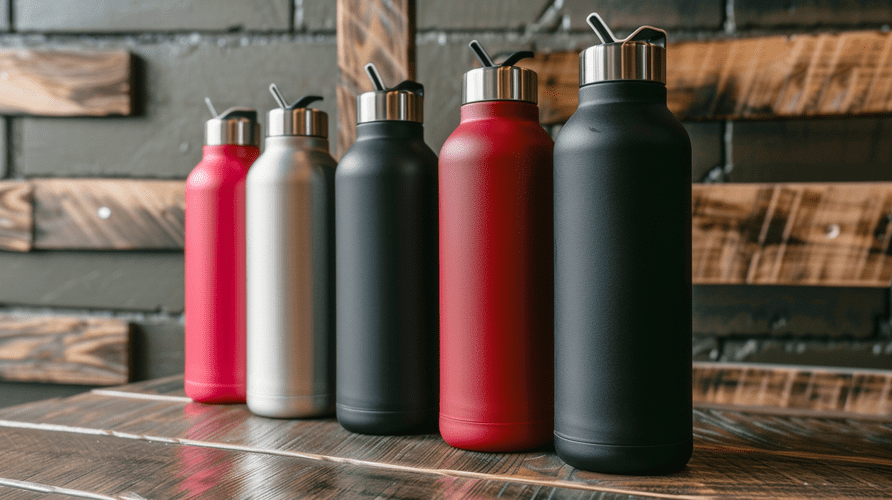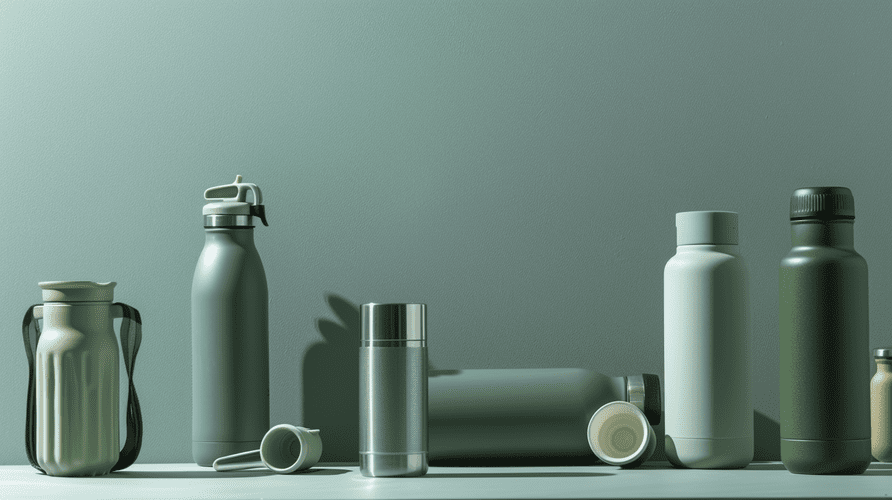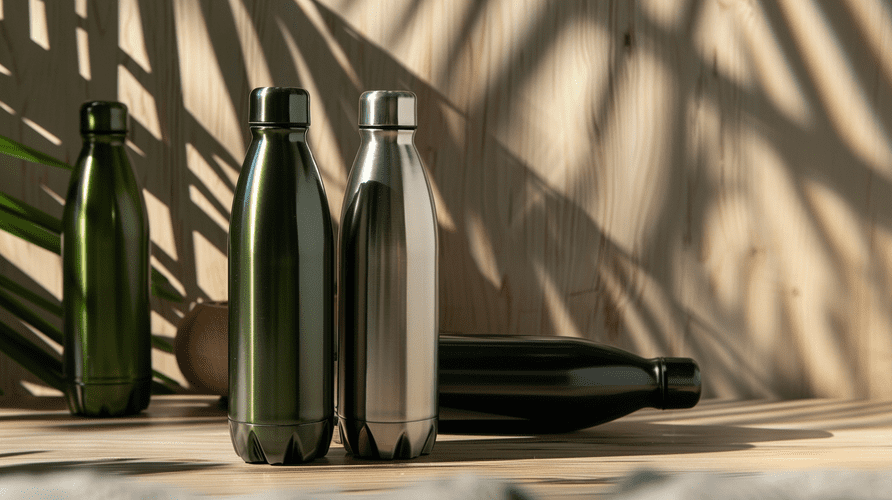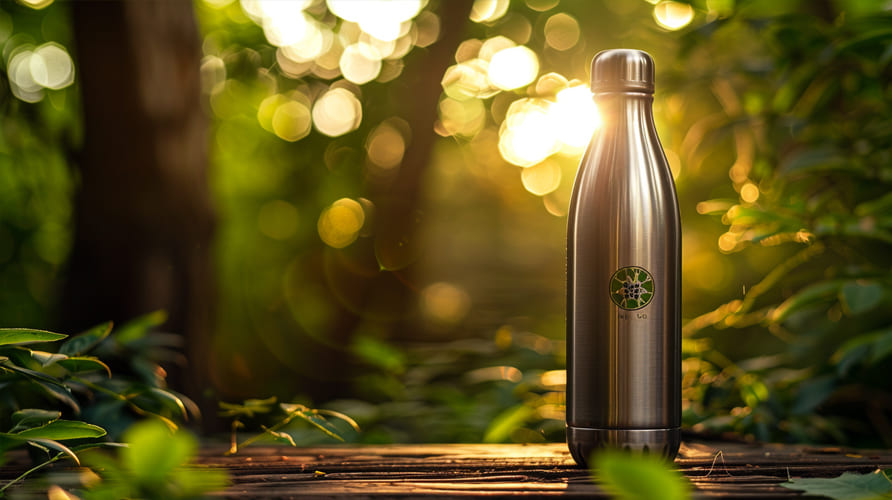Feeling lost about how much water to drink? This confusion can stop you from reaching your health goals. Let's find some clear answers together.
The truth is, there isn't one magic number for everyone. Your ideal water intake depends on things like your activity level, your overall health, and even where you live. However, a common piece of advice you’ll often hear is to aim for about 8 glasses, which is roughly 2 liters, each day.

You've probably heard the "8 glasses a day" rule many times. It’s a good starting point for many. But is that the full story for you? Or does your body need something a bit more specific? Let's dive deeper and find out more about tailoring your water intake to your own needs.
How much water should you drink based on your weight?
Does the standard water advice feel a bit too general for you? Your body is unique, after all. Following one-size-fits-all rules might not give your body exactly what it needs. Let's look at how your weight can guide your hydration.
A popular guideline is to drink about half an ounce to one ounce of water for every pound you weigh. For example, if you weigh 150 pounds, this means you should aim for 75 to 150 ounces of water daily. This helps personalize your hydration target.

The Weight-Based Formula
The idea of linking water intake to body weight makes a lot of sense. A common formula suggests drinking between 0.5 to 1 ounce of water per pound of body weight. So, if you weigh 180 pounds, your target would be between 90 and 180 ounces of water each day. That is about 2.6 to 5.3 liters. This range offers a more personalized goal than the general "8 glasses" rule. I find that having such a clear, personal target helps me stay on track with my hydration. As a B2B supplier at Icobottle, I see how this kind of precision makes our customers, who are often brands and importers, very interested in water bottles that have clear volume markings. They understand that their end-users really appreciate these practical details.
Why Does Weight Impact Water Needs?
Larger bodies generally need more water. This is because more body mass means more cells are present and more metabolic processes are happening, all of which require water to function correctly. Think about essential functions like blood circulation, food digestion, and regulating your body temperature. These all need good hydration. And the demand for water increases with body size. It's quite simple: a bigger engine often needs more coolant to run smoothly.
Adjusting for Your Lifestyle
This weight-based calculation provides a great starting point. But it's important to remember to adjust it. You should consider your activity level and the climate where you live. If you exercise a lot, or if you live in a hot and humid place, your body will naturally need more water.
Here’s a simple table to illustrate this:
| Weight (lbs) | Base Water Intake (oz) - Low End (0.5 oz/lb) | Base Water Intake (oz) - High End (1 oz/lb) |
|---|---|---|
| 120 | 60 oz (approx 1.8 L) | 120 oz (approx 3.5 L) |
| 150 | 75 oz (approx 2.2 L) | 150 oz (approx 4.4 L) |
| 180 | 90 oz (approx 2.6 L) | 180 oz (approx 5.3 L) |
| 200 | 100 oz (approx 3.0 L) | 200 oz (approx 5.9 L) |
Having a durable stainless steel water bottle, perhaps one from our Icobottle range, makes it much easier to track your intake. You know the volume of your bottle. So, you can easily count how many refills you need to hit your personal daily target. This is something our clients, like procurement officers looking for practical products, really value.
Is 2 gallons of water a day too much?
You're trying to drink plenty of water, which is great for your health. But is there such a thing as too much? Can drinking excessive amounts of water backfire? Let's discuss if more is always better, or if there's a limit.
For most people, yes, drinking 2 gallons (which is about 7.5 liters) of water every day is too much. It can even be harmful. Drinking that much can lead to a condition called water intoxication, or hyponatremia, where sodium levels in your blood drop to dangerously low levels.

The Risks of Too Much Water
While staying hydrated is very important, overdoing it can definitely cause problems. Drinking far more water than your body actually needs can dilute the concentration of essential electrolytes1 in your blood, especially sodium. This imbalance can disrupt many normal bodily functions. I remember a phase I went through; I thought "more water equals more health" and I tried to drink constantly throughout the day. Instead of feeling super energetic and great, I just felt bloated and a bit off. That experience taught me an important lesson: like most things in life, balance is really key. For procurement officers like Mark Shenng, who always focuses on product quality and safety, understanding potential consumer issues, even regarding something as basic as water intake, can help inform their purchasing decisions for items like water bottles.
Understanding Hyponatremia
Hyponatremia is the medical term for having low sodium levels in your blood. Sodium is a very important electrolyte. It helps regulate the balance of water in and around your body's cells. When you drink too much water too quickly, your kidneys might not be able to get rid of the excess fast enough. This causes the water content in your blood to increase, which then dilutes the sodium. Symptoms of hyponatremia2 can range from feeling nauseous and having a headache to experiencing confusion. In severe cases, it can even lead to seizures. It is a serious condition that needs attention.
When Is High Water Intake Necessary?
There are some specific situations where a very high water intake, like 2 gallons a day, might be recommended. For example, some endurance athletes who are training for very long events in extreme heat might need this much water. But usually, this is done under the guidance of a professional. Or, a doctor might recommend a higher intake for certain specific medical conditions. But for the average person, even if they are quite active, 2 gallons is generally not needed and could be risky. Listening to your body's natural thirst signals is usually a much better guide than aiming for an extreme, arbitrary number. This is one reason why we at Icobottle offer a range of different bottle sizes. A 1-liter bottle might be perfect for daily use for many people. A smaller 500ml bottle could be great for shorter outings or for kids. It's all about providing practical options that fit real, sensible hydration habits.
What is the correct way of drinking water?
You know water is essential for your health. But did you know that how you drink your water can also make a difference? Just gulping it down quickly when you're really thirsty might not be the most effective way to hydrate. Let's explore some better habits for optimal hydration.
The best approach is to sip water steadily3 throughout your day. Try not to wait until you feel extremely thirsty. Spreading your water intake allows your body to absorb it more efficiently and maintain consistent hydration levels. This is much better for you than drinking large amounts all at once.

Sip, Don't Gulp
When you sip water regularly, you give your body a good chance to absorb it properly. If you gulp down large quantities of water all at once, it can sometimes overwhelm your system. Much of that water might pass through your body too quickly, without being fully utilized by your cells. Think of it like watering a very dry plant. A slow, steady trickle of water will soak deep into the soil much better than a sudden, heavy downpour. I always keep my stainless steel Icobottle on my desk when I'm working. Just seeing it there serves as a simple reminder to take sips throughout the day, even when I'm busy with emails or on calls. It’s a simple habit, but it makes a big difference in how hydrated I feel.
Timing Your Water Intake
When you drink your water is also quite important. It's a good idea to start your day with a glass of water. This helps to rehydrate your body after sleeping for several hours. You should also try to drink water before you feel very thirsty. Thirst is actually an early sign that your body is already starting to dehydrate. And, it's very important to drink water before, during, and after you exercise. This helps to replace the fluids your body loses through sweat. For our B2B clients, like brands and importers who sell water bottles, they know their customers are looking for products that support these healthy habits. They want bottles that are easy to carry and use anytime, anywhere, making hydration convenient.
Tools for Better Hydration Habits
Having the right tools can make it much easier to drink water correctly and consistently. A good quality, reusable water bottle4 is definitely your best friend in this effort. It makes it simple to always have water with you.
Here’s a quick comparison table to show what I mean:
| Good Hydration Habits | Poor Hydration Habits |
|---|---|
| Sipping water steadily throughout the day | Gulping large amounts of water at once |
| Drinking when you start to feel thirsty | Waiting until you are extremely parched |
| Hydrating before, during, and after exercise | Forgetting to drink during physical activity |
| Carrying a reusable water bottle always | Relying on occasional drinks or single-use plastics |
| Starting the day with water | Skipping water in the morning |
A durable, well-designed stainless steel bottle, like the ones we produce at Icobottle, encourages you to carry water with you wherever you go. This makes sipping throughout the day both convenient and even a bit stylish. It’s not just about quenching your immediate thirst; it's about fostering a consistent, healthy hydration lifestyle. This is a key selling point for businesses that are sourcing water bottles to offer to their own customers. They want products that actively help people live healthier.
Conclusion
Staying properly hydrated is very personal, and it's not always simple. Listen to your body, use these guidelines as a starting point, and find what truly works best for you. A good water bottle can certainly make it easier!
-
Electrolytes play a vital role in hydration. Discover their importance and how to maintain a healthy balance in your body. ↩
-
Understanding hyponatremia is crucial for recognizing the dangers of excessive water intake. Explore this link for detailed insights. ↩
-
Discover the advantages of sipping water steadily for better hydration and overall health. This resource can enhance your understanding of hydration habits. ↩
-
Explore top-rated reusable water bottles that make staying hydrated easy and convenient. A great resource for choosing the right bottle for your needs. ↩

